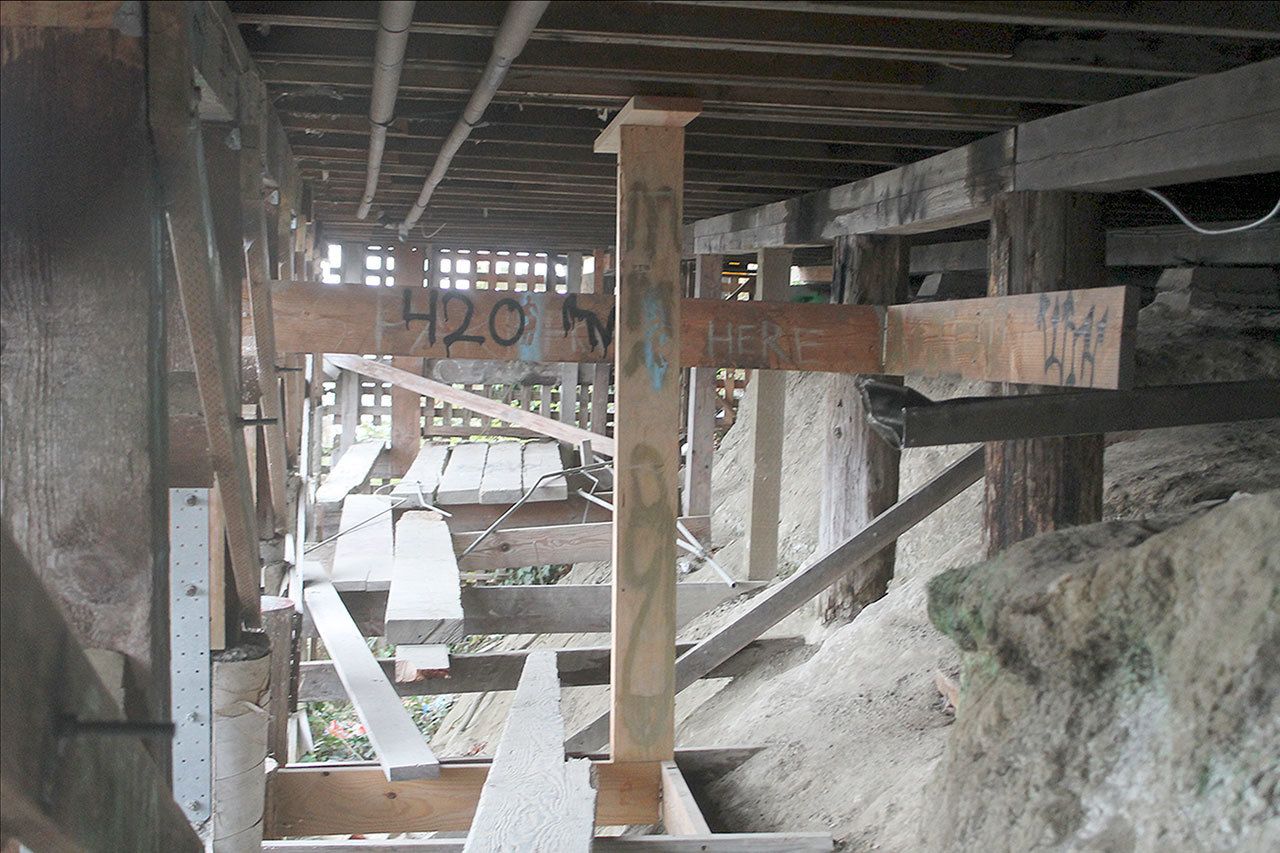While the city of Langley considers opening its doors as a sanctuary city, it hopes to shut the door on another type of guest.
Illicit behavior happening at Seawall Park will again be a focal point during a community discussion at 6 p.m. on Dec. 21 at Langley City Hall. Options not previously considered to thwart drug usage and homeless activity occurring at the city’s most popular park could include surveillance cameras or motion lights, Mayor Tim Callison said at a Dec. 5 city council meeting. The public is asked to bring ideas of its own as well. The input will then be collected and provided to the council for consideration and follow-up action.
City council members Rene Neff and Dominique Emerson said the meeting is essentially a continuation of a discussion that began in September. Langley Police Chief David Marks urged the council to consider closing city parks at nighttime following the finding of 40 heroin syringes in a period of just two weeks. In October, the city council preliminarily approved an ordinance that imposed hours of usage at Seawall Park from midnight to 6 a.m., but in a later reversal it tabled the motion following public outcry. The council instructed Mayor Tim Callison to hold a workshop to address concerns with public health and property protection, while also keeping the park open throughout the night.
Accomplishing all of these things, however, could be easier said than done.
During the course of several public meetings about issues at Seawall Park, there was a chasm between residents with opposing viewpoints. Residents with young children claimed there were dangers of being poked by discarded needles, while others doubted the severity of the drug usage and felt a closure to the park infringed upon their ability to access it.
The differing of opinions is likely to continue on Dec. 21, but each idea will be valued and not put down, Neff said. Gathering input from both sides will be essential to the city council as it determines which direction to go. Not letting emotions get in the way of that will come with the challenge.
“The thing that is most important is that we are able to hear each other and not get hostile,” Neff said. “That doesn’t help anything.”
Even Neff and Emerson were split on their feelings about possible solutions to the problem; Neff was in favor of motion lighting while Emerson has found them to be “somewhat annoying.” Neff and Emerson were in support of building some kind of blockade to prevent vagrants from accessing the undersides of First Street buildings along the bluff. Neff said she would like to see the area “boarded up” while Emerson has proposed a fence be built at the toe of the bluff. Both options would require some level of cooperation with private property and building owners, they said.
“I think that really takes working with the owners,” Emerson said.
Neff said that it may just be time for affected property and building owners to step up and take action.
“That is a property owner’s responsibility,” Neff said.
Neff and Emerson said the topic of closing the park at nighttime is likely to be addressed, but both could not foresee the council deciding to impose them.
“I would have to hear something very compelling,” Emerson said.
Marks remains an advocate of his original proposal to close the park. He said he isn’t aware of any town or city other than Langley that doesn’t close their parks at nighttime.
“I’m not sure why we wouldn’t close it at night,” Marks said. “I haven’t changed my opinion.”
While the syringe problem has largely abated — only two other heroin syringes have been found in the past couple of months — Marks said he doesn’t believe it’s permanently solved. Neff and Emerson didn’t rule out the possibility of the issue returning either.
“I think everyone is trying to find a resolution,” Emerson said. “I do think the problem has abated, but I don’t think we can count it out.”


